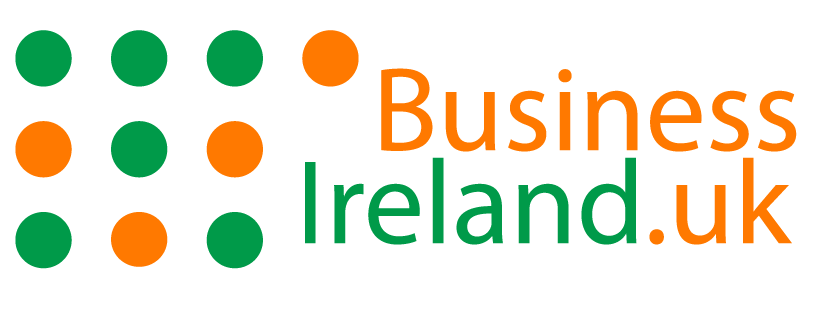Individuals and businesses in Ireland need skilled accounting services for managing finances well. Accountants have big roles, from keeping financial details accurate to following rules and helping make big decisions. This guide is here to help you understand accountancy in Ireland fully. It helps businesses get the right support to do well.
Key Takeaways
- Significant roles of accountants include accurate financial reporting and compliance.
- Reliable accountancy services are crucial for both small and large businesses.
- A comprehensive understanding of Irish accountancy helps in effective financial management.
- Strategic decision-making is a key benefit of professional financial management.
- Finding the right accounting support is essential for business growth and success.
Understanding the Role of an Accountant in Ireland
In Ireland, an accountant does a lot more than just keep track of money. They provide the deep financial reporting that Irish businesses need. They make sure companies follow local tax laws. They also give valuable advice to help businesses make smart money choices.
The Importance of Reliable Accounting Services
Reliable accounting is key to the success of businesses in Ireland. Accountants keep financial records straight and follow all the rules. This is crucial for running smoothly and staying out of trouble with the law. It means businesses can focus more on growing and coming up with new ideas.
Key Responsibilities of Accountants
- Preparing and analysing financial statements to generate valuable insights for stakeholders.
- Ensuring compliance with Irish tax laws and helping businesses navigate complex tax codes.
- Providing strategic advice that can influence business decisions based on thorough financial analysis.
- Offering comprehensive financial reporting Ireland demands for robust business evaluations.
Essential Qualifications for Accountants in Ireland

In Ireland, for top-notch financial services, accountants must have qualifications from recognized bodies. These show in-depth training and a commitment to ethics and continual learning. Chartered Accountants Ireland (CAI) and the Association of Chartered Certified Accountants (ACCA) give out the key qualifications.
Chartered Accountants Ireland (CAI)
Qualifications from Chartered Accountants Ireland are highly valued. CAI offers comprehensive training and tests to ensure members are skilled across various accounting areas. They follow a strict ethics code, making these professionals highly reliable in managing financial affairs.
Association of Chartered Certified Accountants (ACCA)
The ACCA qualification is crucial for accountants. It’s globally recognized, showcasing great expertise and knowledge. ACCA hones technical skills and understanding of business, equipping accountants to offer essential insights. Having ACCA means an accountant can handle the financial sector’s growing needs effectively.
How to Assess Your Business’s Financial Needs
Knowing how to check your business’s finances well is vital for its growth and success. It allows you to see what areas need more help, improving your financial strength.
Identifying Key Financial Areas for Assistance
Spotting where your business needs financial help is crucial. You might need support with tax, financial planning, managing payrolls, or following the law. Knowing these areas helps you find the right financial aid.
- Tax Preparation: Ensuring all filings are accurate and on time to avoid penalties.
- Strategic Planning: Developing long-term financial strategies to support growth.
- Payroll Management: Streamlining payroll processes to enhance efficiency.
- Regulatory Compliance: Keeping up-to-date with financial laws and regulations.
Determining Business Size and Complexity
The size and complexity of your business greatly affect your financial needs. Smaller businesses have simpler needs, while big companies handle more complex finances. It’s important to match with an accountant skilled for your financial challenges.
- Small Businesses: Often need basic bookkeeping and tax services.
- Medium-Sized Enterprises: May require more detailed financial planning and analysis.
- Large Corporations: Typically need complex financial modelling, in-depth audit processes, and extensive compliance checks.
Finding a Reputable Accountant: Recommendations and Referrals

When you’re looking for a trustworthy accountant in Ireland, word-of-mouth recommendations are key. They give you true insights based on other clients’ real experiences. This helps you understand an accountant’s professionalism and dependability.
- Ask others in your field for referrals. People in your industry might know accountants who are experts in your area’s financial matters.
- Look into professional circles. Groups associated with your industry can suggest accountants who are recognized for their skills and client satisfaction.
- Explore online reviews. The internet is full of reviews from past clients. This can help you measure an accountant’s reputation and trustworthiness.
By following these guidelines, you’re more likely to find excellent accountant suggestions. This ensures your financial tasks are in good hands. Going for recommendations from trusted sources can make you confident in your choice. Getting along well with a reputable accountant in Ireland can greatly smooth out your financial management. This, in turn, boosts your business’s success.
Expertise in Industry-Specific Financial Challenges
In today’s fast-changing world, companies face unique financial issues. An industry-specific accountant offers crucial insights. They use their knowledge to help businesses deal with tough regulations and make the most of their finances.
Understanding Industry Regulations
Every industry has its own set of rules that affect how money is managed. Accountants who know these rules inside out ensure regulatory compliance. This know-how reduces the risk of legal or financial problems, protecting the business.
Tailored Financial Solutions
Each business has its own financial needs, and a single approach doesn’t work for everyone. Customised financial solutions are crafted to fit a business’s specific requirements. They can boost financial well-being and streamline operations. Accountants with industry knowledge devise strategies that promote growth and ensure stability.
Evaluating Communication and Collaboration Skills

In the world of accountancy, having strong accountant communication skills is crucial. They help build effective collaboration in accounting. This leads to strong financial advisory relationships and, as a result, successful financial results for clients.
First, accountants need to be good at explaining complex financial details simply. It’s important for clients to understand technical terms in practical ways. Also, being open and clear in communication builds trust. This is key for any financial advisory relationship to work.
Collaboration is also very important in accounting. It means accountants work closely with clients to really understand their financial wants and problems. By doing so, accountants can give advice and solutions that fit each client’s specific financial situation.
Plus, being good with people makes interactions smoother and answers to client questions faster. Being willing to work closely with clients makes their experience much better. Listening well and responding with empathy are part of accountant communication skills too. They make clients feel listened to and valued.
To sum up, checking how well an accountant can communicate and work with others is very important for companies looking for trustworthy financial advice. Accountants who are great at these skills can build strong financial advisory relationships. This leads to smarter financial choices and better planning.
Technological Proficiency for Modern Accountancy
In today’s accounting world, being skilled in new technologies is key for top-notch financial services. Advanced software has changed the way accounts are handled and understood. This part talks about vital tech skills needed by accountants today.
Importance of Accounting Software
Knowing how to use different accounting software is crucial. These tools make hard tasks easier, speed up work, and increase precision. They allow accountants to create instant financial reports, helping in making smart decisions. Famous software like QuickBooks, Xero, and Sage provide full packages for current accounting needs.
Adapting to Emerging Technologies
Keeping up with new technologies is also essential for staying ahead in accounting. Innovations like artificial intelligence (AI) and blockchain are changing finance. Accountants need to be up-to-date with these changes to offer new services and stay relevant. Using these new technologies improves productivity and the accuracy of financial advice.
Having strong tech skills is important for accountants to meet changing industry demands. It leads to growth and better efficiency. So, being great with accounting software and current tech trends is a must for modern accounting work.
Cost and Value: Getting the Best Financial Partner

Choosing an accountant in Ireland means weighing cost against value. It’s vital to find someone affordable who delivers excellent service. They should help meet your business’s financial aims. Finding a balance between what you pay and what you get is key for better results.
Evaluating a financial partnership is vital to see if an accountant fits your needs. It’s about looking at cost versus quality and expertise. By doing this, businesses gain efficiency and clearer finances. The right accountant turns their knowledge into useful insights for growth.
To get the most from an accountant in Ireland, look beyond immediate costs. Consider the long-term gains like smart tax advice and efficient bookkeeping. Choosing someone with the right expertise and cost-effectiveness is crucial. It’s the best way to find a dependable financial ally.
The Role of Taxation in Accountancy in Ireland
In Ireland, knowing about taxation is key for accountants. They must make sure businesses follow strict tax rules. This means they play a vital role in applying tax laws correctly.
Understanding Irish Tax Laws
Accountants have to know both accountancy and Irish tax laws well. They should be familiar with taxes like corporation tax, income tax, and VAT. By understanding these, accountants can give precise financial advice and help with tax planning.
Compliance with Tax Regulations
Following tax rules is essential to dodge fines and maintain a good reputation. Accountants work on preparing and submitting correct tax returns. They stay updated on tax law changes and ensure financial practices are lawful. This effort allows businesses to manage Irish tax matters smoothly.
Effective Bookkeeping Practices
Good bookkeeping is crucial for a business’s financial health. Accountants need to keep records well for clear operations and smart choices.
Record-Keeping Essential Strategies
Using good bookkeeping methods matters for every business. It includes:
- Keeping up with records all the time.
- Using both digital and traditional ways.
- Organising financial transactions properly.
With the right bookkeeping strategies Ireland, companies meet regulatory standards.
Maintaining Accurate Financial records
To keep financial records true, it involves:
- Matching accounts and statements correctly.
- Keeping transactions up to date.
- Securing data with backups.
Following these steps, companies trust their financial statements for decisions. Good bookkeeping leads to smart planning and success.
Strategic Financial Planning and Advice
Strategic financial planning and advice are key for businesses seeking growth and stability. By planning wisely, companies can set achievable goals, use their resources smartly, and keep track of progress. This strategy leads to long-term financial health.
Accountant consultancy firms in Ireland provide customised help, guiding businesses through financial complexities. They offer valuable insights on handling cash flow, budgeting, and forecasting. This helps companies make smart choices.
Let’s talk about the important parts of strategic financial planning and advice:
- Goal Setting: Setting clear financial targets is a critical first move.
- Resource Allocation: It’s important to allocate resources well to ensure good returns and low risks.
- Continuous Monitoring: Keeping an eye on finances regularly and adjusting strategies when necessary is key.
- Sound Investments: Getting advice on managing investment portfolios and finding investment chances is valuable.
Consultancies in Ireland excel in understanding market trends and providing advice that meets a company’s financial goals. They support businesses to stay flexible, ready to grab new opportunities or tackle any challenges.
Auditing: Ensuring Financial Accuracy and Compliance
Regular audits are key in keeping financial records straight and following Ireland’s changing rules. Companies in Ireland need auditing services to check on their financial well-being and how they operate. With a detailed look at financial records, audits maintain transparency. They are also crucial for gaining the trust of investors.
The Importance of Regular Audits
Audits are really important for keeping a company’s finances in line. They help find any mistakes and build trust with people who have a stake in the business. Audits look at financial reports in an honest way. This shows where a company stands financially and what needs to get better. They also keep businesses updated on new rules and how to follow them, reducing the risk of breaking them.
Steps in the Auditing Process
The auditing process has several important stages for a detailed check and accurate outcomes. Auditors first collect and look over financial documents and information. Then, they figure out where problems might happen. After this, they closely check financial activities and controls to make sure they’re right and effective. Ending with a detailed report, auditors suggest ways to do better. This ensures Irish businesses can keep up with strict financial rules.







